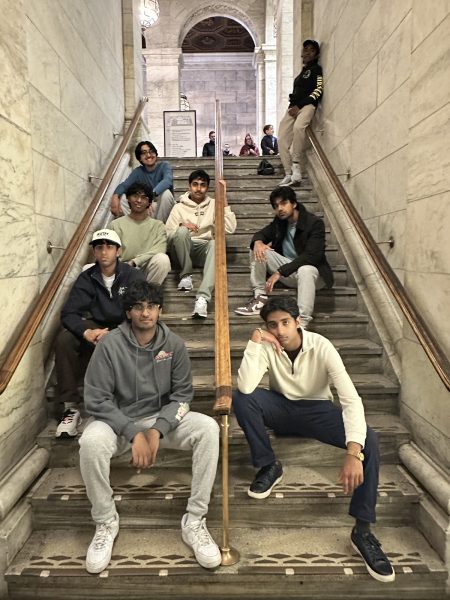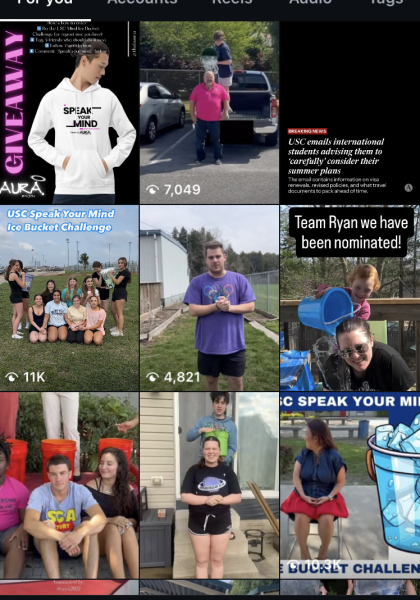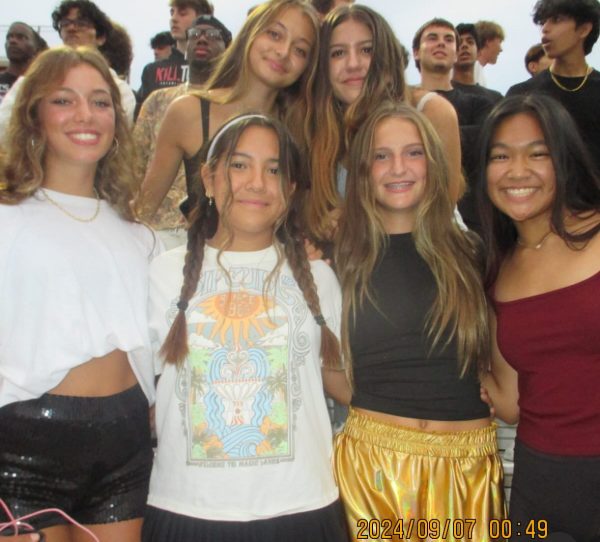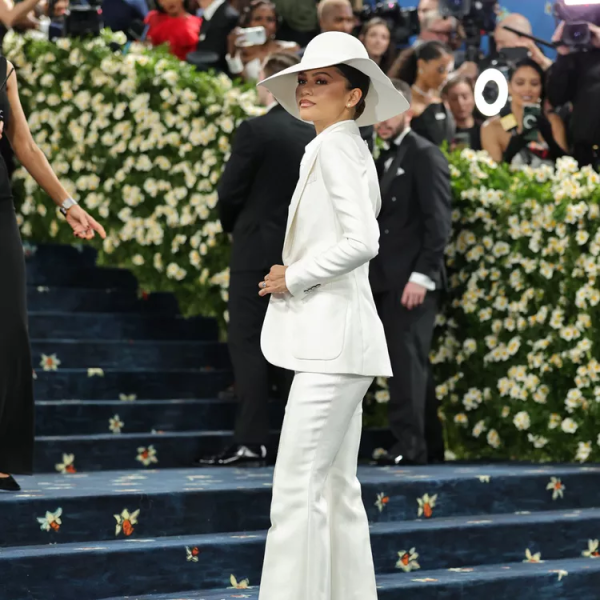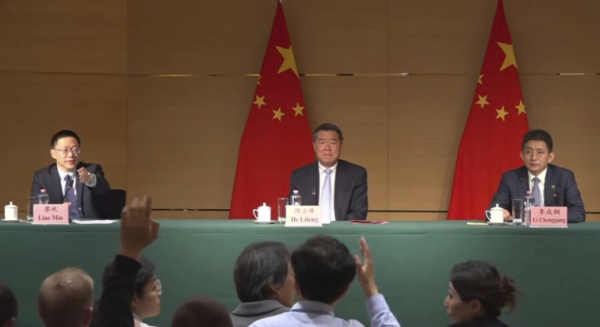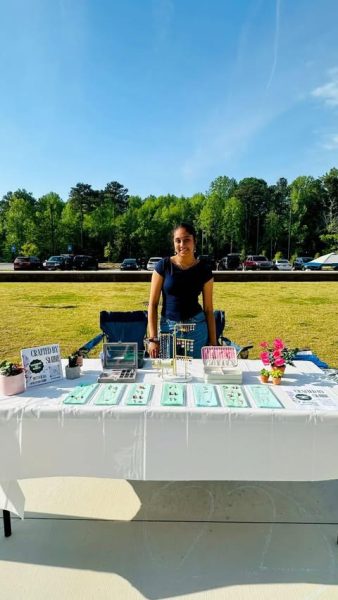BeReal Won’t Help You Be Real

Three Lambert students taking their BeReal during lunch, specifically posing for the picture. Photograph taken by Chitvan Singh.
As social media continues to dominate teens’ lives, it’s now the format for a majority of social interaction for Generation Z. Having to be in the same room as someone is no longer a requirement to have a meaningful conversation.
Despite the original intention of many platforms, social media, especially in recent years, has turned from a way to communicate with your friends to the way many present themselves to the world.
The digital nature of social media also makes it difficult to decipher whether a profile is an authentic presentation of someone or not. For example, someone could post that they donated $10,000 online and most people would have no real way to check.
Whether it’s editing a picture to make yourself look better or outright fabricating events, the fact is that a lot of people lie on social media.
It’s this problem that a new app called BeReal attempts to solve. BeReal, unlike other social media sites, tries to enforce both what and when you post in order to provide an authentic experience.
When you make an account for BeReal, you won’t be able to publish whatever you want. Every day, the app will notify you during a random time period referred to as “It’s time to BeReal.” During the two-minute interval that follows, users are encouraged to post exactly what they’re doing at that moment.
By setting up a random time, BeReal wants you to capture an authentic snapshot of your day.
You can’t post from your camera roll either. When you make a BeReal post, both your front and back cameras will activate, getting all perspectives of the current moment. Through these measures, BeReal advertises itself as an opposition to the “fake” nature of other social media.
Despite its best efforts though, BeReal still can’t seem to be completely authentic. While it attempts to convey a feeling of ‘real’ social media, BeReal is often not a true representation of people, despite its advertising. Even though BeReal will send you a notification each day, there’s no real need to post within that time frame. If you want to, you can simply wait until you’re doing something more fun or until you look more photogenic.
“I do see people do multiple attempts,” Lambert junior and BeReal user Om Chauhan said.
As he describes, people often ignore BeReal’s measures designed to promote ‘real’ social media, and instead specifically pose for their pictures as opposed to candid shots. The app will tell you how many attempts it took to take a certain picture, and it’s rarely just one.
BeReal has a good idea in place, an authentic experience that helps you keep in touch with your friends. But in the app’s current state, this is simply a suggestion rather than a requirement. It may sound boring, but a stricter environment would make people take the kind of photos that BeReal hopes to showcase.
Without these measures, it’s only a matter of time before BeReal starts to devolve into a ‘fake’ social media like many of its competitors.
While it’s true that this experience may not be true for everyone, those who want these personal, genuine interactions would greatly benefit from the aforementioned changes.
BeReal gained popularity among teens as the next big thing, but if it wants to keep this momentum going, it needs to promote itself in the so-far niche market of authenticity online.
It’s rare these days to find ‘real’ interactions online, but BeReal is in the perfect position to start making them possible. While BeReal today won’t help you be ‘real’ online, a future version of the app very well could.
Your donation will help support The Lambert Post, Lambert High Schools student-run newspaper! Your contribution will allow us to purchase equipment and cover website hosting costs.



